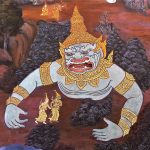The lucid image of a “loving” God may not be dismissed as cheap propaganda by priests of various religions. Indeed, IL is a God of love and care for human beings. However, the Gods of kings and priests of walled cities preferred to use a type of fear that was generated by facts as known at the time. The close association between God, king and priest ensured that believers fear God first, king second and priest third by the simple suggestion that the king was blessed by God and the priests were the servants of God and king. The “unbelievers” can expect the severe punishment by God Himself meted by his king on Earth and priests in the temples.
As in the majority of important secrets of the past, the answere to a question such as “For Whom the Pyramids?” may lie in the very name given to a thing, a case, a situation or entity human or devine. Therefore, haram (Ancient Arabic for pyramid) is the word to consult for the name of the God. Haram (هرم) is a triliteral construction of the biliteral root (*HR) supplemented by a third letter in suffixe mode, m. In additon to haram, examples of other triliterals formed by adding a third letter to the *HR are several.
 To begin with, it is important to identify the meaning or meanings given to the biliteral root itself, i.e. *HR. This critical biliteral is a full entry of more than 1,200 words in Lisan al-Arab where the the second, r, letter is repeated to make it a triliteral listing. Meanings provided by the calssical lexiographers include: hurtle, collapse, drop from a high point, collpse in bits and pieces, diintegrate, to hate or detest something, hatred, a type of very fast galloping during which horses strike earth thunderingly, to react to a great danger or evil, to flush out things, shake, a great deal of water, milk, etc., rattling sounds of swords during battles, the howling sound of wind,” etc.
To begin with, it is important to identify the meaning or meanings given to the biliteral root itself, i.e. *HR. This critical biliteral is a full entry of more than 1,200 words in Lisan al-Arab where the the second, r, letter is repeated to make it a triliteral listing. Meanings provided by the calssical lexiographers include: hurtle, collapse, drop from a high point, collpse in bits and pieces, diintegrate, to hate or detest something, hatred, a type of very fast galloping during which horses strike earth thunderingly, to react to a great danger or evil, to flush out things, shake, a great deal of water, milk, etc., rattling sounds of swords during battles, the howling sound of wind,” etc.
The following triliterals include the two letters of the biliteral in capital letters and the third or suffixed element in red:
HaRa’ (هرأ)”to worn out, perish due to severe cold or heat, fragment, fall out, the talk of embeciles,” etc.
HaRa‛ (هرع) “fast running, speed (of running, walking, etc.), shake, tremble (of cold, fear, etc.), madman,” etc.
HaRab (هرب) “to flee, run away.”
HaRad meanings similar to those of HaRat.
HaRaj (هرج) “pandemonium, confusion”.
HaRaq (هرق) “downpour, flood something, spill liquids including somebody’s blood,” etc.
HaRas (هرس) “crush, smash, turned to pulb, run over.”
HaRaš (هرش) “rough (person, dog, etc.), infighting, commotion, merging, scratch (head, etc.) in a rough manner,” etc.
HaRat (هرت) “worn out, tear off something, to tear or break something to enlarge it, excessively cooked meat causing its integration to bits,” etc.
HaRaz (هرز) “perish, die, extinguish, drown as a result of rising flood water,” etc.

In many cases, the semantic domain of a primary (invented first) biliteral overdlows to that of its secondary (invented later by reversing the two letters of the primary). It is not always possible to determine which is primary and which is secondary but usually more advanced meanings are signs of a secondary due to the development of human awareness that may lead to more complex meanings.
In addition to triliterals, several nucleitic compounds are also listed in Lisan al-Arab and several dozens of the biliteral, triliterals and other extensions are found in several languages including Hindi in which the nucleitic compound HaRDaM (*HR + *DM) means “always” but it amy as well mean “forever,” and “ever lasting.”
The most striking element of the semantic domain of *RH is deep fear.
Ths is the case of *RH, the secondary of *HR.
1) ‘*RH’ “terror, fall, to drop from a high position”.
2) ‘*RaHba’ “nun”, ‘*RaHib’ “priest”.
3) ‘*HaRam’ (haram) “pyramid”.
4) *HR ‘*HaRab’ “to flee”.
5) ‘*HaRaj’ “pandemonium”.
6) ‘*HaRas’ “crush, smash”.
7) ‘*HaRaq’ “to spill a great deal of blood”.
8) ‘*HaRim’ “old, very old, really old, ancient”.
http://www.wordfind.com/starts-with/Har/#words5
Believe it or not ‘haram’ is from a religious linguistic cluster *HR/*RH. *RH is a root one of the most common meanings of which is “terror”. Another meaning is “to drop, to fall”. ‘*RaHba’ is “a nun”, ‘*RaHib’ is a “priest”.
One of their most important ports (in Oman today) is called “Sumharam”, i.e. the Haram of the Sum. The Sum are the Sumerians and the Phoneticians. If you read some of the religious texts found in Ugarit, northern Syria, you will see Haram in some of them.

The Step Pyramid of Djoser at Saqqara in Egypt. Tour Egypt
Last modified: December 30, 2022



